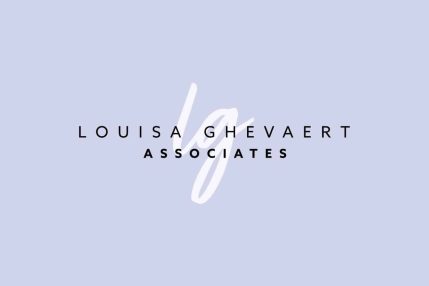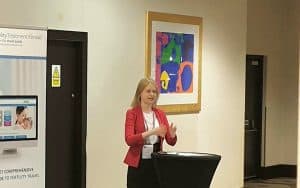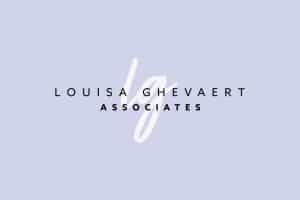19 July 2022
In X v Y [2022] EWFC 77*, the applicant applied to the English Family Court for a declaration of parentage following a 35-year search for her biological father to resolve issues relating to her identity and her birth certificate. In granting the application, the court navigated complex legal issues and drew inferences from the respondent’s refusal to undergo DNA testing and lack of opposition to the application. As such, X v Y brings into close focus the importance of identity, status and parentage and the re-registration of birth certificates to provide properly maintained records not just for the benefit of individuals but for the public as well.
Background
The applicant sought a declaration of parentage pursuant to s55A of the Family Law Act 1986 to resolve long-standing matters relating to her identity and her birth certificate. The applicant was born in 1971 to an unmarried mother aged 21. At the time of the applicant’s birth, her birth certificate and the register of births did not include information about her birth father. Her mother subsequently married and as a teenager the applicant was informed that her mother’s husband was not her biological father. The applicant went on to ask her mother who her biological father was but was not given reliable information.
In 2018, the applicant therefore registered with an ancestry website. Upon receiving initial positive results, she engaged the help of a genealogist who advised her that the respondent was most likely to be her biological father. This was then confirmed by the applicant’s mother who admitted she had had a brief relationship with the respondent. The applicant proceeded to contact the respondent directly and indirectly but was informed by a relation of the respondent that he was ‘not interested’. Following solicitor correspondence, the respondent confirmed that he had had a short relationship with the respondent’s mother at the relevant time, but made clear that he was unwilling to engage in any form of social relationship with the applicant. In November 2020, he agreed to undergo a DNA test but said there would be some delay due to Covid-19 restrictions in place at the time. His agreement to DNA testing continued in correspondence sent in December 2020, January and March 2021. However, on 1 September 2021, the respondent’s solicitors confirmed that he was no longer willing to voluntarily undergo a DNA test, although if the applicant applied for a declaration of parentage he would not oppose it.
The applicant therefore applied to the English Family Court for a declaration of parentage in November 2021 that the respondent was her father and to enable her to correct her birth certificate. In her supporting statement she described the importance for herself and her family of establishing who her biological father is and went on to say “I still want to know if [the respondent] is definitely my biological father and have my birth certificate changed to reflect that he is. This is important to me from an identity perspective, as I want to hopefully fill in a big gap in my life history and answer a question I have been asking myself for the past thirty-five years”.
At a directions hearing on 4 March 2022, the applicant remained hopeful that the respondent would agree to DNA testing, but he reiterated his opposition to this. The court invited the respondent to reflect on the benefits of certainty that would result from undergoing a DNA test and made a direction for DNA samples to be provided to enable testing to take pace. However, the respondent’s position remained unchanged and he did not comply with the court’s direction for DNA testing. As a result, the applicant invited the court to determine her application on the basis of the respondent’s lack of opposition to the application or from inferences to be drawn from his lack of consent to DNA testing.
The court took into account previous cases which had considered identity in the context of applications for declarations of parentage. In the matter of HFEA 2008 (Cases A,B,C,D,E.F.G and H Declaration of Parentage) [2015] EWHC 2602 (Fam) Sir James Munby observed:
3 “What, after all, to any child, to any parent, never mind to future generations and indeed to society at large, can be more important, emotionally, psychologically, socially and legally, than the answer to the question: “Who is my parent? Is this my child?”.
In addition, the court took into account the following key elements in applications for a declaration of parentage in H v R [2021] EWHC 1943 (Fam) where Mr Justice MacDonald stated:
48 “The question of parentage is a question that concerns more than just the individuals involved in a specific case. Issues of status, such as parentage, can be expected to be approached with some formality in circumstances where they concern not only the individual but also the public generally which has an interest in the status of an individual being spelled out accurately and in clear terms and recorded in properly maintained records (per Re S (A Child) (Declaration of Parentage) [2012] All ER (D) 140 at [24]).”
The court also concluded that it could draw compelling inferences from the respondent’s failure to consent to DNA testing pursuant to the Court of Appeal ruling Re H [1996] 2 FLR 65 where Lord Justice Ward concluded [pp76-77]:
“It seems to me that a refusal to comply after the solemnity of the court’s decision is more eloquent testimony of an attempt at hiding a truth than intransigent objection made as a forensic tactic. Science has now advanced. The whole truth can now be known. As Waite LJ said in Re A (A Minor) (Paternity: Refusal of Blood Test) [1994] 2 FLR 464, 47B:
‘Against the background of law and scientific advance, it seems to me to follow, both in justice and in common sense, that if a mother makes a claim against one of the possible fathers, and he chooses to exercise his right not to submit to be tested, the inference that he is the father of the child should be virtually inescapable. He would certainly have to advance very clear and cogent reasons for this refusal to be tested – reasons which it would be just and fair and reasonable for him to be allowed to maintain.’
Although that was a case of a refusal being made after a direction had been given, I, like Wall J, ‘see no intellectual difference between the two situations’. Common sense seems to dictate that if the truth can be established with certainty, a refusal to produce the certainty justifies some inference that the refusal is made to hide the truth, even if the inference is not as strong as when the court’s direction is flouted”.
The Judge, Mrs Justice Theis, then proceeded to make a declaration of parentage stating:
“When considering the evidence as a whole, including the inference that can and should be drawn from the respondent’s refusal to comply with the direction is to hide the truth, and the respondent’s lack of opposition to the order being made I am satisfied that it is more likely than not that the respondent is the applicant’s biological father. There is no suggestion that to grant the application is manifestly contrary to public policy. Consequently, the declaration of parentage will be made”.
*Louisa Ghevaert Associates acted for the applicant in X v Y [2022] EWFC 77. You can read the full Judgment here.
Family law advice and legal representation
X v Y [2022] EWFC 77 therefore highlights the importance of resolving questions such as ‘Who is my parent? Is this my child?’. It also brings into focus the complex issues that can arise in the context of DNA testing, whether following an at-home direct-to-consumer DNA test or a court direction to undergo DNA testing within court proceedings. X v Y also makes clear that issues associated with identity, status and parentage are important emotionally, psychologically, socially and legally not just for individuals but for future generations as well.
Images: Louisa Ghevaert CEO & Founder Louisa Ghevaert Associates







